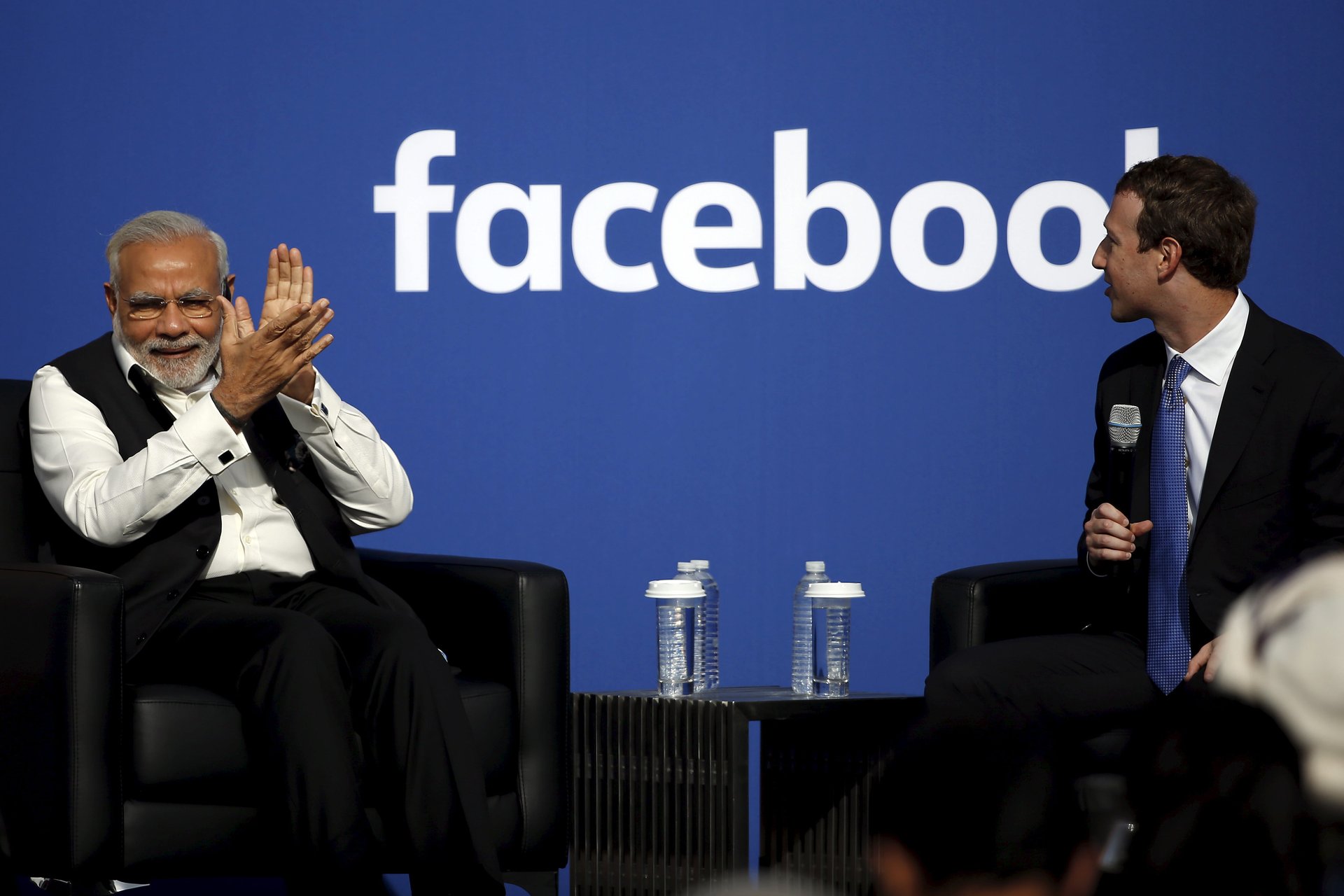Allegations of favouritism in India couldn’t have come at a worse time for Facebook
Facebook could get into trouble if the allegations of political favouritism in India are proved true. But the timing of these claims itself could have a damaging effect on the social media giant.


Facebook could get into trouble if the allegations of political favouritism in India are proved true. But the timing of these claims itself could have a damaging effect on the social media giant.
On Aug. 15, The Wall Street Journal reported that the Mark Zuckerberg-led company favoured prime minister Narendra Modi’s Bharatiya Janata Party (BJP) in India and allowed its politicians to promote hate speech to stay in the good books of the government. There are now demands for a parliamentary probe into workings of Facebook India.
The social media giant is already in the middle of an anti-trust probe in the US over accusations of unfair practices, among other things. And the last thing the company would want is increased scrutiny in its largest market.
Facebook has around 290 million users in India, which is also one of the biggest markets for the company’s messaging app, WhatsApp.
“The revenue model of Facebook in India depends largely on advertising. And if consumers in its largest market start having concerns around its partiality then there is a problem,” said Arvind Singhal, chairman at management consultancy firm Technopak Advisors. “While people will start distancing themselves from the platform, the brands that advertise on Facebook could also face negative consequences among their target audience with a risk of siding with certain political parties,” Singhal explained.
Meanwhile, several prominent Indians have left Facebook as a mark of protest against the allegations.
What really happened?
Quoting unidentified Facebook executives, The Wall Street Journal cited an example of how Facebook had not taken down hateful posts targetting Muslim Rohingya refugees from BJP member T Raja. The report also said that Ankhi Das, Facebook’s public policy head in India, opposed the application of hate-speech rules to members of BJP.
Facebook has denied all allegations and said it enforces policies against hate speech “without regard to anyone’s political position or party affiliation.” Meanwhile, Das has filed a police complain stating threat to her life over the whole controversy.
“We prohibit hate speech and content that incites violence and we enforce these policies globally without regard to anyone’s political position or party affiliation. While we know there is more to do, we’re making progress on enforcement and conduct regular audits of our process to ensure fairness and accuracy,” a Facebook spokesperson said.
After the Wall Street Journal report, Facebook also took down some posts by Raja and another BJP politician, Anand Hegde.
But that might not be enough to solve Facebook’s problems in India.
“The users in India are evolving, and they are highly aware of what’s happening around them. Time and again, they’ve united, raised their voice, and challenged the mainstream media when it indulged into unethical practices and social media giants will receive no different treatment,” said Mumbai-based digital analyst Ami Shah. “Companies such as Facebook need to be more ethical in their dealings in India.”
Political turns
This isn’t the first time Facebook has landed in trouble with political parties in India. In 2018, a year before general elections in the country, Facebook got embroiled in a data theft scandal involving UK firm Cambridge Analytica, which was accused of accessing data of millions of social media users to help elect US President Donald Trump in 2016.
Now, too, allegations against Facebook are causing a political storm in India.
The BJP has categorically denied the allegations and claimed that Facebook pages linked to the BJP have faced unilateral action by the social media company.
Congress leader Shashi Tharoor, who heads the parliamentary standing committee on information technology, said the panel would like to hear from Facebook about the report.
As the issue gathers steam, a Delhi government panel on Aug. 17 said that it will summon Facebook officials over complaints about the social media platform’s alleged “deliberate and intentional inaction to contain hateful content” in India.